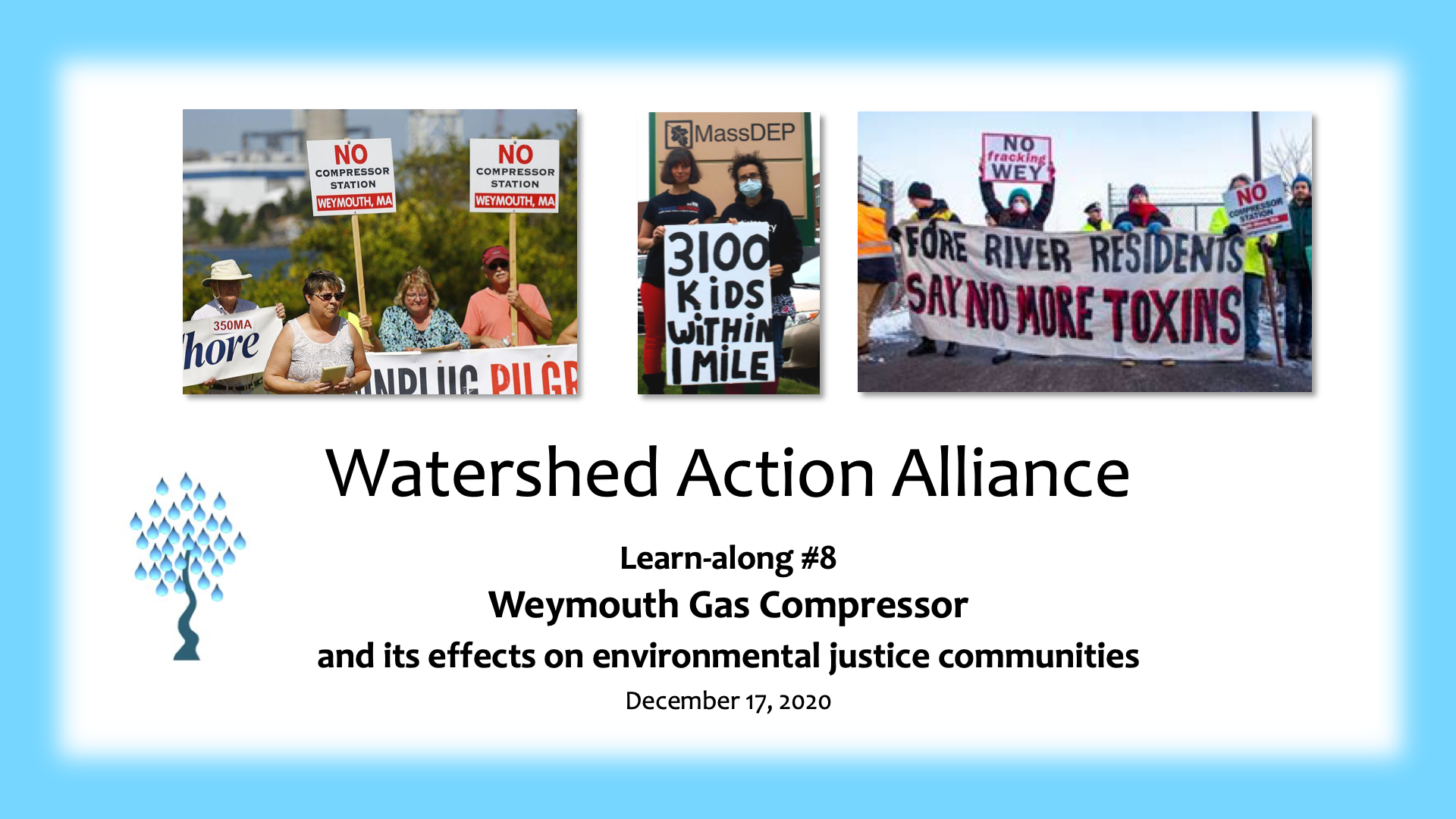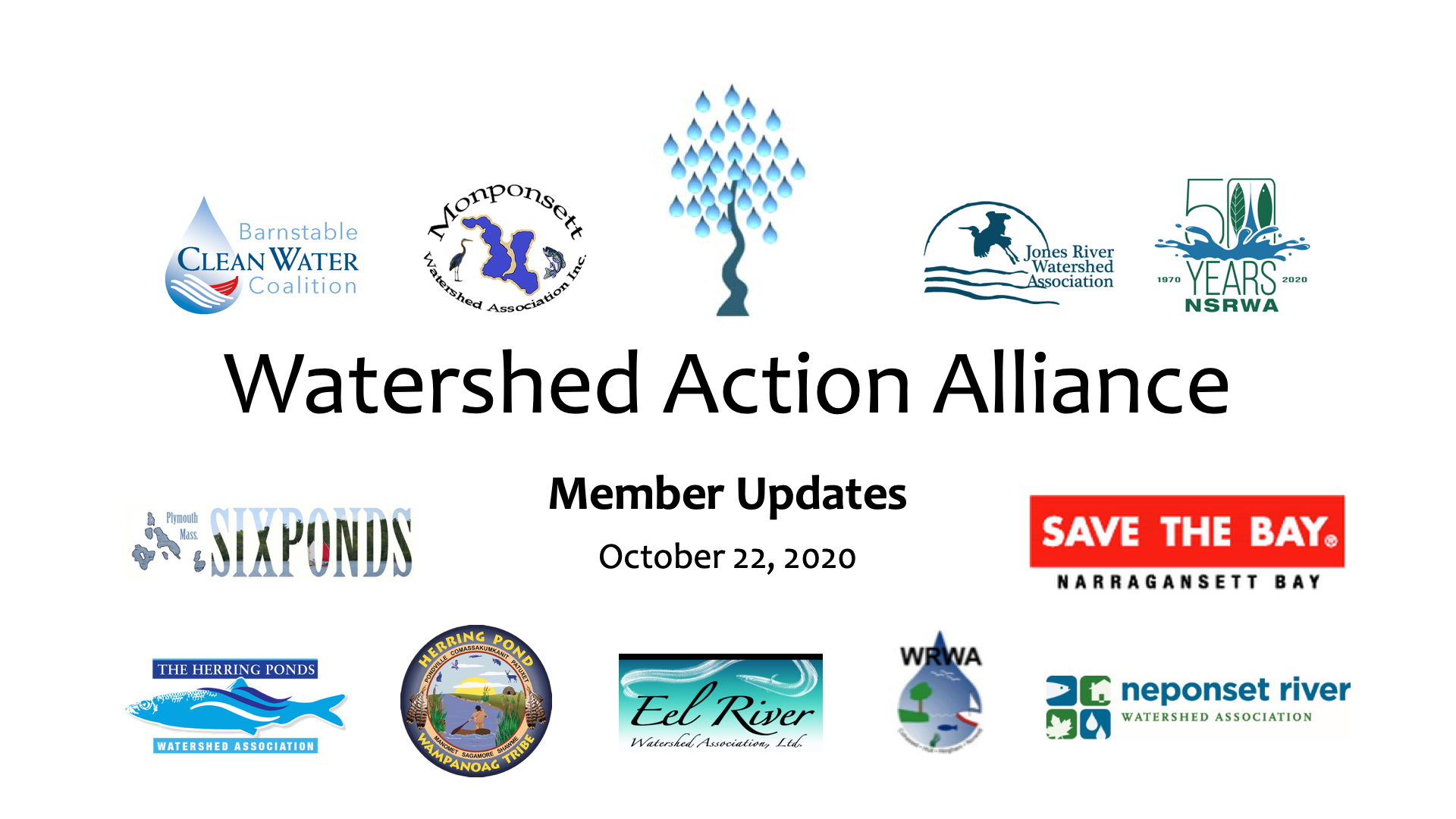Join Watershed Action Alliance and learn about environmental justice and issues pertaining to diversity, equity and inclusion in environmental conservation in Southeastern Massachusetts in preparation for our March 2021 conference.
For eight months in 2020, WAA representatives studied and discussed a topic or heard from a local person from a community in our watershed whose stories weren't familiar to us, or whose histories have been overlooked, minimized or distorted. There were short readings, video and other materials for us (and you) to review. You can browse through all of the topics or go month by month and get a broad background in environmental justice topics and issues of diversity, equity and inclusion in the "water world" of Southeastern Massachusetts and beyond.
-
Month 8. The Weymouth Natural Gas Compressor
-
In December we learned about the serious, adverse effects of the siting of a fracked gas compressor on the Fore River in Weymouth on an environmental justice community in Quincy and residents in nearby towns. The Reverend Betsy Sowers of Fore River Residents Against the Compressor Station (FRRACS) discussed the details of its placement, how state politics played into the situation and how FRRACS has been fighting it.
- Watch the video of Reverend Sower's fascinating and disturbing description of the Weymouth compressor's literal and figurative dirty reality
- Read an damning article from the Boston Globe about how corporate power and shady politics allowed the compressor to be built near a densely populated area where residents, many of low socioeconomic status, already suffering from higher than average rates of asthma
- Visit nocompressor.com to learn more about the grassroots efforts to fight the compressor to help keep South Shore residents healthy and safe and to preserve water and air quality

-
Month 7. Inclusion and the LGBTQIA+ Community
-
In our quest to promote inclusivity in our organizations and ourselves, we held a round-table discussion on the topic, touching upon issues of importance to the LGBTQIA+ community. Guests included Shalen Lowell and Craig Richards. Shalen was an intern for WAA in 2013 and identifies as transgender, gender-fluid and non-binary. Additonally, they are a writer; their first novel is Gender Optics. Craig is a former president of Six Ponds Improvement Association, is well-versed in running inclusive meetings and identifies as a gay man. Before you watch the video, have a look at these definitions of LGBTQIA+ terms provided by Shalen.
Month 6. WAA Member Updates
This month we heard from our member organizations about their latest projects, successes and challenges. Be inspired and uplifted by their hard work and passion for water quality, river restoration, citizen science and environmental justice. If you haven't joined a watershed association yet, or are looking for another one to support, view the video to find numerous worthwhile choices!
-
Month 5. Environmental Justice News Reporting
Joanna Detz, publisher and cofounder of the independent news website ecoRI news, spoke about environmental justice issues pertaining to water in or near Providence, Rhode Island. She discussed how money and political will are necessary to change the trajectory of polluting industries and how their reporters try to shine a spotlight on serious issues to help community groups gain wider audiences, among other things. Joanna commented lead in Providence's drinking water service lines, stormwater innovation (a success story!), and the climate justice plan for the city.
-
- Watch the video (30 minutes)
- Check out the in-depth stories about environment by ecoRI news, including Under Contruction: Green Justice Zones in Providence
- Listen carefully to Herring Pond Wampanoag Tribe President, Melissa Ferretti, as she comments on the impact of "clean energy" on indigenous peoples. Visit the North American Megadam Resistance Alliance website for more information about the numerous detrimental effects of huge hydroenergy projects in Canada on Native peoples. This energy is marketed and sold as "clean energy" in Massachusetts and other states
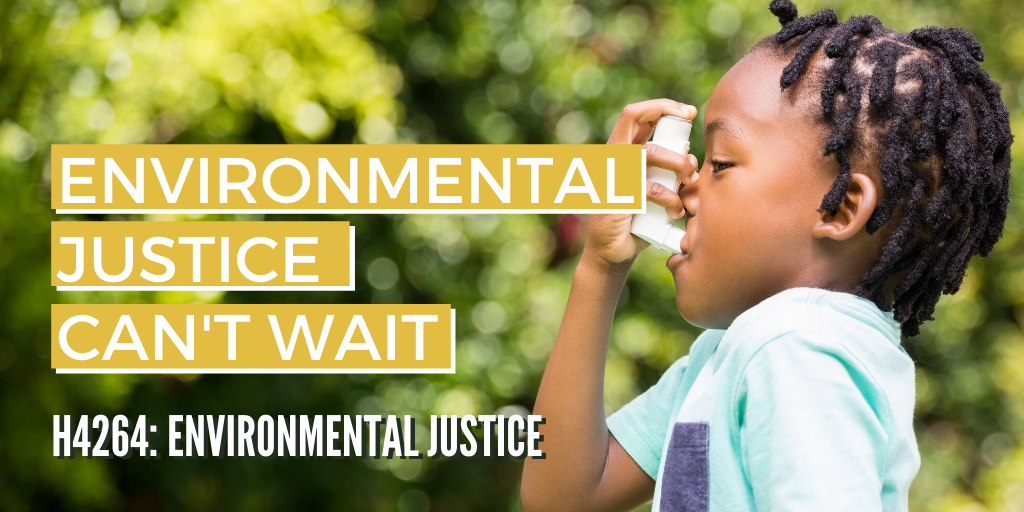
Month 4. Environmental Justice Legislation and Projects
A big thank you goes to our Month 4 speaker, Sabrina Davis, of the Coalition for Social Justice
We audio-recorded Sabrina as she spoke about state environmental justice legislation, projects in New Bedford and Fall River addressing environmental and social inequities, and suggestions for action and better communication.
- The audio recording of Sabrina Davis
- More about the Coalition for Social Justice
- Environmental Justice Law and Policy in Massachusetts
· Article 97 of the Massachusetts Constitution, adopted in 1972, forms the foundation of environmental justice by recognizing people's right to clean air and water and a healthy environment. It states, in part: "The people shall have the right to clean air and water, freedom from excessive and unnecessary noise, and the natural, scenic, historic, and esthetic qualities of their environment; and the protection of the people in their right to the conservation, development and utilization of the agricultural, mineral, forest, water, air and other natural resources is hereby declared to be a public purpose."
· Executive Order 552, issued by Governor Deval Patrick in 2014, required that every secretariat, not just the environmental agencies under the purview of the Executive Office of Energy and Environmental Affairs, develop a strategy to promote environmental justice, so that it becomes and stays a priority for the executive branch.
· Environmental Justice Policy (2017 revision), originally issued in 2002, spells includes the state's definition of environmental justice, which is the same as the federal definition. The Policy sets criteria for environmental justice populations and outlines specific services available to them from the Office of the Secretary, including translation services, fact sheets, alternative media outlets and from the agencies within the Executive Office of Energy and Environmental Affairs. This includes enhanced public participation under MEPA, senior level commitment and more. The Policy concludes with investments in the economy and open space that promote environmental justice.
· H. 4264. In January 2019, there were more than 20 bills filed in Massachusetts that mentioned environmental justice or environmental justice populations/communities. The most comprehensive bills were S.453/H.826 and S.464/H.761. The Environmental Justice Legislation Table formed to advocate for those bills and revise the language. These bills were reported out of the ENRA Committee as H. 4264
· S.2500. On July 31, 2020, the House amended their climate bill (H.4912) onto the Senate’s climate bill (S.2500). Language from H.4264 was included as Amendment 52, which was unanimously approved by the House. The bill is currently in conference committee. If enacted, it would update the definition of environmental justice populations, require agencies to consider environmental justice in permit and other approval review, analyze cumulative public health impacts, and ensure that environmental justice populations can better participate in government hearings. Proponents desire additional protections for environmental justice communities in addition to those required by Executive Order 552.
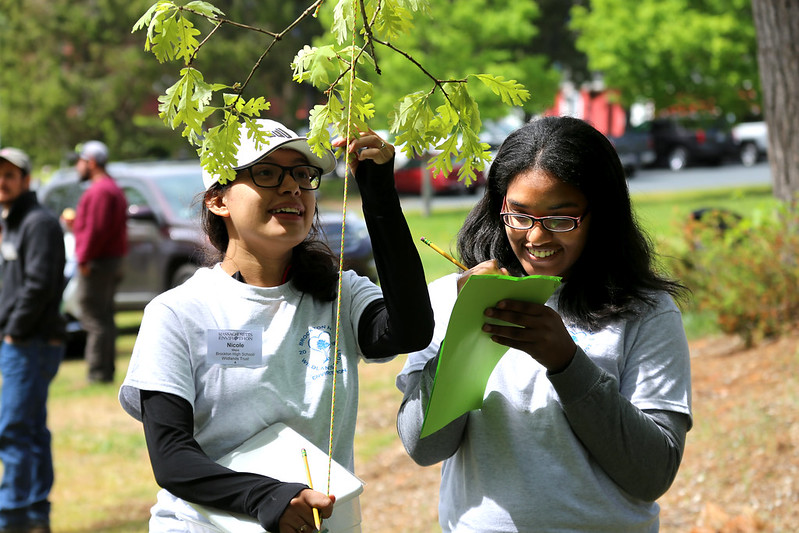
Month 3. Engaging Urban Youth through Envirothon
Get ready for an inspiring conversation videorecorded for your viewing pleasure!
At our July meeting, three talented young women from the City of Brockton in Massachusetts, spoke on a panel addressing their involvement with Massachusetts Envirothon and how that affected their educational and career choices. Their biology teacher, Joyce Vorhees, their Envirothon mentor, Rachel Calderara of Wildlands Trust, and the Envirothon program made a big difference in their lives. After a brief introduction, the video starts with a presentation by Calderara who reviews the exciting and relevant work in Brockton by Wildlands Trust. Following that, the three panelist introduce themselves, and finally, they answer questions from Watershed Action Alliance members including ways that discrimination affected them and how individuals and organizations can be more inclusive.
- Watch the video
- More about Massachusetts Envirothon
- More about Wildlands Trust, one of the oldest and largest regional land trusts in Massachusetts
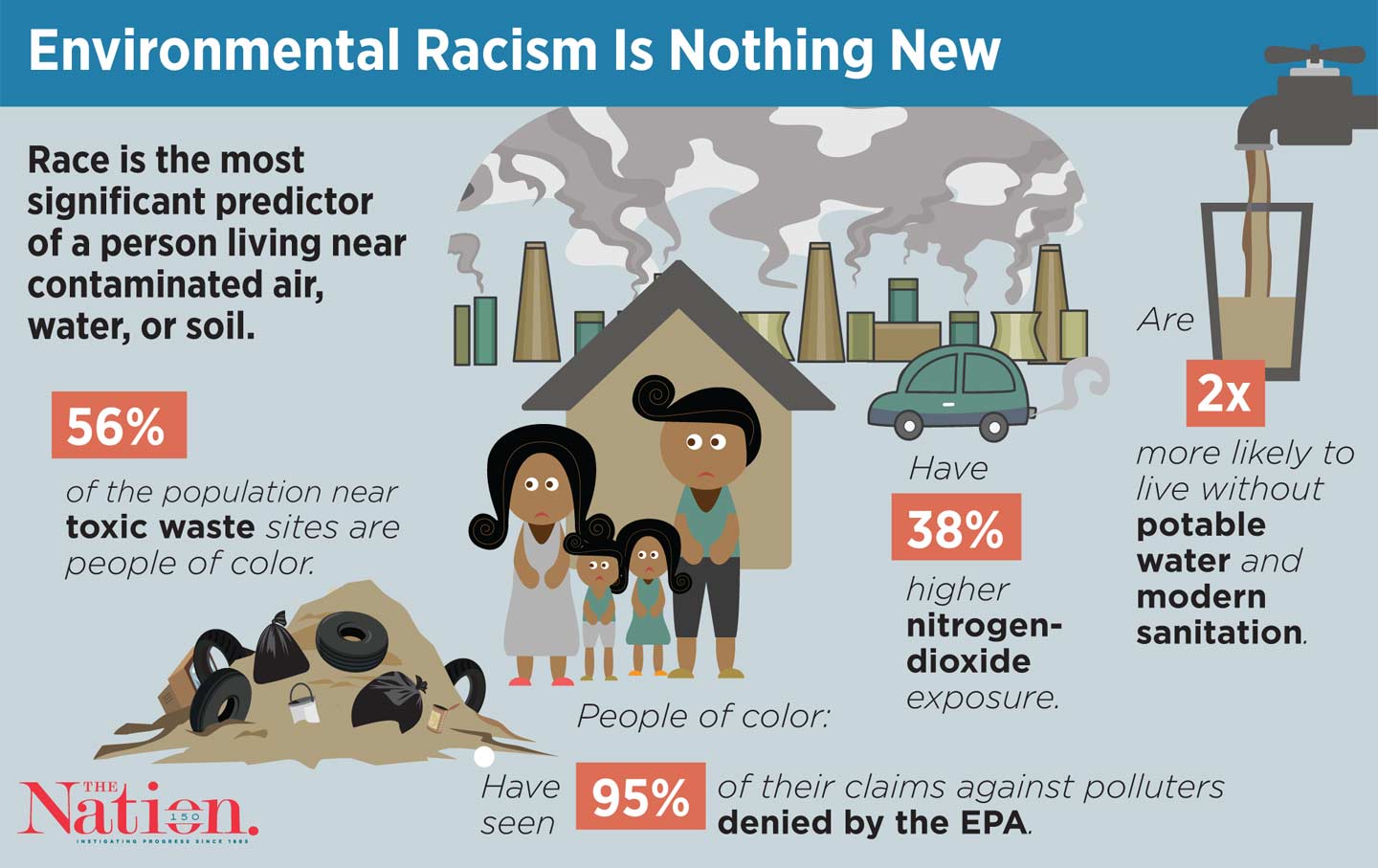
Month 2. Environmental Justice and Racism
-
- - Watershed Action Alliance's statement on environmental justice and racism
- - Definition of environmental racism, an important concept to understand. Environmental justice is the corrective action taken to address the results of environmental racism
- - Why every environmentalist should be anti-racist, by Leah Thomas
-
- - Additional resources
- Environmental Protection and Social Justice: We Can’t Have One Without the Other, Opinion piece by Frank Carini, EcoRI News
- Responding to protests, green groups reckon with a racist past, a brief history of racism in the environmental movement
- Follow @jacquipatt on Twitter. Jacqui Patterson is Director of Environmental and Climate Justice at NAACP
- Learn more about intersectional environmentalism
- - Additional resources
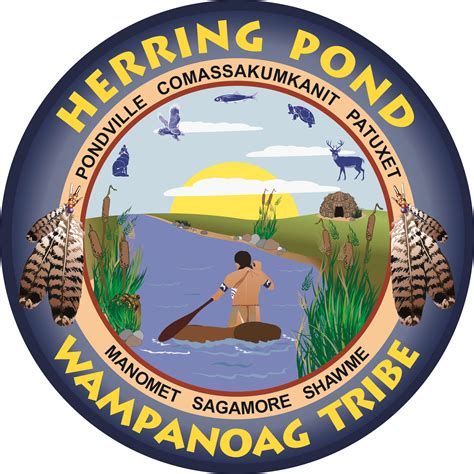
Month 1. Herring Pond Wampanoag Tribe
through the perspective of Melissa Ferretti, chairlady and president
-
-
- - About Melissa Ferretti - her personal history, perspectives and mission as chairlady. Click here.
- - Recommended readings
- - Websites for more exploration
-

